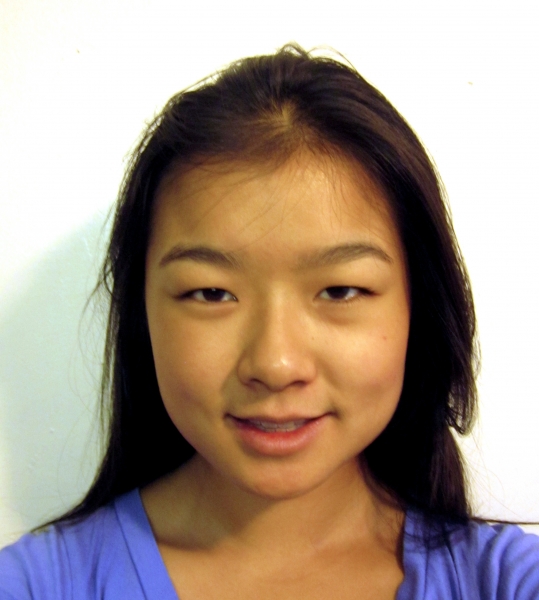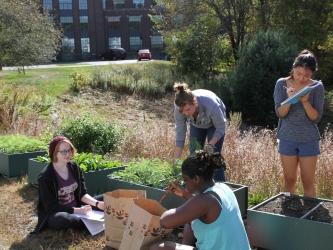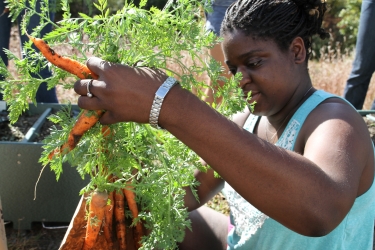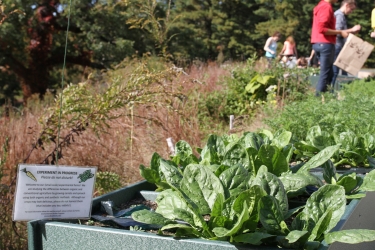Organic? Local? Genetically modified? Students consider how to best feed the world.
ES 103 Environment & Society: Food, Agriculture & Sustainability
In Professor Jay Turner’s first-year seminar, you might spend your day out in the dirt, harvesting both organically grown and conventionally grown carrots from a “farm-in-a-box.” You might travel to a local food pantry to learn about food access in the Boston area. Or perhaps you’ll have a lively classroom debate on the ethics of eating meat.
ES 103 is a hands-on, interdisciplinary introduction to the questions of food. “Many of our students are coming to Wellesley with big questions about food, agriculture, and environmental sustainability,” said Turner. “The goal of this class is to give them the chance to critically assess many familiar assumptions—local is good, meat is bad, and organic is best—by considering the scientific, social, and ethical dimensions of food and agriculture at scales from the local to the global.” The results can be surprising. As Turner explains, “Understanding and addressing these problems means working across the disciplines—understanding the basics of plant science and fertilizers, considering the politics and economics of farm subsidies, and considering the ethical and ecological implications of eating meat or cultivating genetically modified crops. This interdisciplinary approach is at the heart of environmental studies.”
With the help of Mia Howard, a research technician in the Botanic Gardens, students in ES 103 started a long-term study comparing organic and conventional agricultural systems, including variables such as productivity, soil health, labor, and costs. The experiment offers students a chance to compare the results from the small-scale experiment with those conducted on larger-scale commercial agricultural systems. The results may be of interest to backyard farmers everywhere.
In addition to the hands-on experiences offered by field trips and the “farm-in-a-box” experiments, Turner also emphasizes public speaking, offering students a variety of opportunities to practice their speaking skills on these crucial issues. The course is part of the Maurer Public Speaking Program.

I wasn't especially interested in science and took ES 103 hoping that the topic of food would be enough to get me through. But I love it; everyone is engaged... and we laugh quite a bit. I am able to take the knowledge from class and apply what I learned to my life and the world at large.
—Virginia White '17



